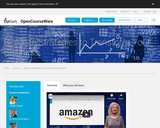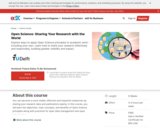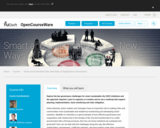
While big data infiltrates all walks of life, most firms have not changed sufficiently to meet the challenges that come with it. In this course, you will learn how to develop a big data strategy, transform your business model and your organization.
This course will enable professionals to take their organization and their own career to the next level, regardless of their background and position.
Professionals will learn how to be in charge of big data instead of being subject to it. In particular, they will become familiar with tools to:
assess their current situation regarding potential big data-induced changes of a disruptive nature,
identify their options for successfully integrating big data in their strategy, business model and organization, or if not possible, how to exit quickly with as little loss as possible, and
strengthen their own position and that of their organization in our digitalized knowledge economy
The course will build on the concepts of product life cycles, the business model canvas, organizational theory and digitalized management jobs (such as Chief Digital Officer or Chief Informatics Officer) to help you find the best way to deal with and benefit from big data induced changes.
- Subject:
- Applied Science
- Business and Communication
- Computer Science
- Engineering
- Material Type:
- Full Course
- Provider:
- Delft University of Technology
- Provider Set:
- TU Delft OpenCourseWare
- Author:
- Claudia Wakker
- Dr. Scott Cunningham
- Marijn Janssen
- Date Added:
- 02/19/2019

